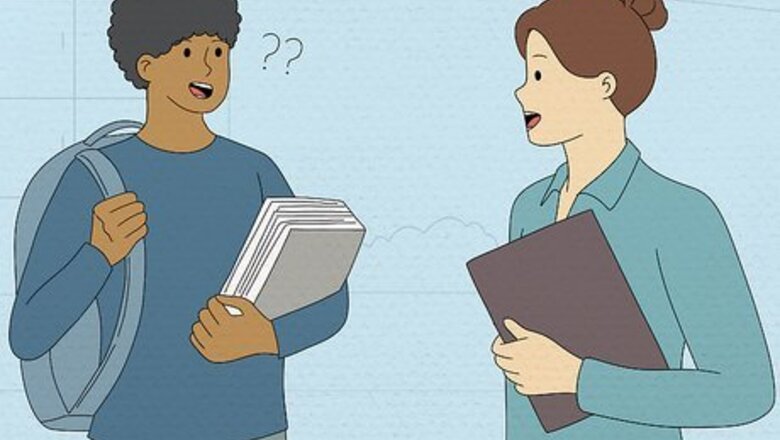
views
Dealing with an Annoying Teacher

Ask them what they are looking for. If your teacher is a hard grader, try to get more details when they give an assignment. Ask if there is anything specific they are looking for, and if there's anything you should avoid.

Look interested when they tell long stories. Some teachers have a habit of going off on a tangent and telling long stories that aren't related to the subject. Try not to look too bored, and just wait until they get back on track.
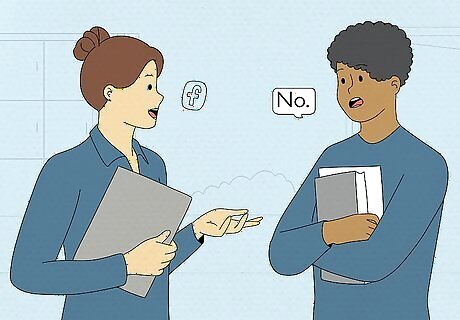
Just say no if they want to be your friend on Facebook. Not only would this be terribly embarrassing, it is sure to cause problems. A teacher should never insist on being part of your social life, so just tell them you only add friends and family on social media.
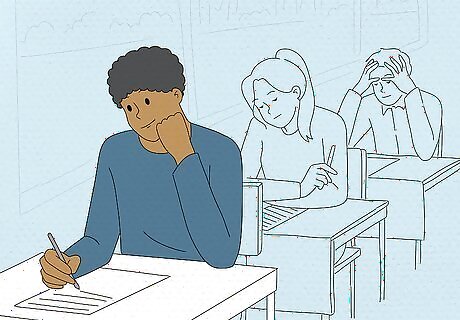
Keep track of when they give pop quizzes. Some teachers have a knack for hitting you with a pop quiz when you are least prepared. They probably aren't completely random events, however. Figure out when they're most likely to surprise you, so you can be prepared. Some teachers like to give pop quizzes after an assigned reading. If you haven't had a major test in a few weeks, be prepared for a quiz. Some teachers punish a rowdy class with a pop quiz. If your class seems to be annoying the teacher, start reading through your notes just in case.
Getting a Difficult Teacher to Like You More

Kill them with kindness. There is a saying that goes, “Always be extra nice to your enemies. Nothing annoys them more.” Try to be as polite as possible in class, and don't take the bait if your teacher tries to get a rise out of you. Eventually, this may wear them down and they'll start treating you like one of their favorites. And if not – well, it will really annoy them that you don't seem to be upset by them anymore.
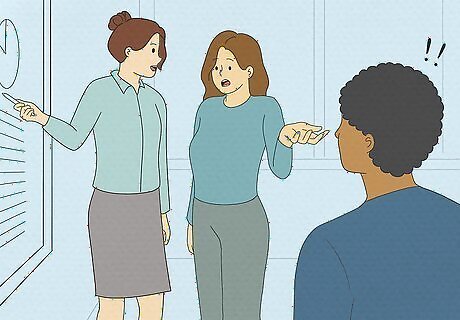
Watch how other students interact with them. Pay special attention to the kids that the teacher treats best. Try to act like they do, and use the same tone of voice. If you find yourself in an uncomfortable situation, ask yourself, “How would (your teacher's favorite) handle this? What would they probably say?”
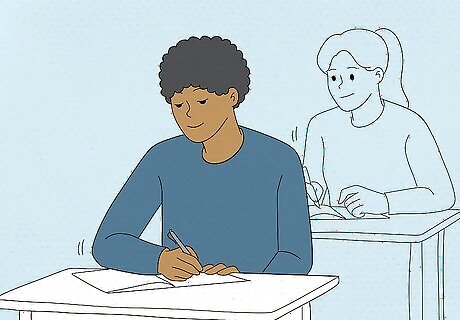
Always look like you're paying attention. The number one pet peeve of most teachers is being ignored in class. Think how it would feel if you read a report in class, and the kids started talking to each other like you weren't there – no fun, right? Pretend you're taking notes. Work on homework for a different class, write a poem or story, or make “to-do” lists. Avoid drawing or doodling, because most teachers can see that it isn't writing from across the room.

Bring them a gift. If you're too shy to hand it to your teacher, leave it on their desk at the end of the day with a little note just saying the gift is from you and you hope they enjoy it. If you get juice or a candy bar between classes, buy two and bring one to your teacher. Pay attention to which topics your teacher seems to be most excited about, then print out a funny or interesting article about it. Bake cookies or brownies, and wrap up a few little bundles of 2-3 cookies each. Hand them out to all your friends and teachers. This way it won't look like you specifically brought them to kiss up to your annoying teacher. If you can't make enough, give it to them at the end of class when most students have already left.
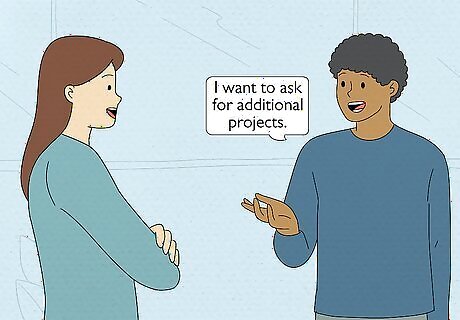
Do extra credit. If on assignment they give numbers 1-20 plus a bonus problem, always answer the bonus question. If your grades aren't the best, ask if you can do an additional project to improve your grade. Your teacher will be impressed by your initiative, and may treat you better as well.
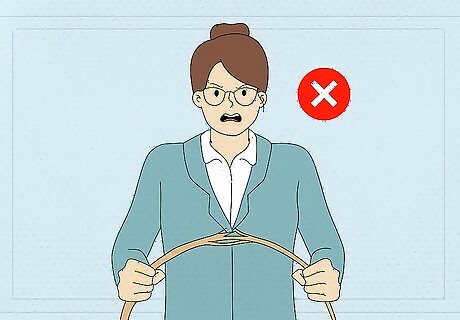
Don't do anything to make the situation worse. Although it's difficult to get past your own feelings sometimes, it's important to see if there is anything you can change. Is there anything in your behavior that triggers your teacher's reaction? Are you late all the time? Do you forget to do your homework? Do you interrupt her when she is giving a lecture? Correct your behavior and your teacher will probably treat you better.
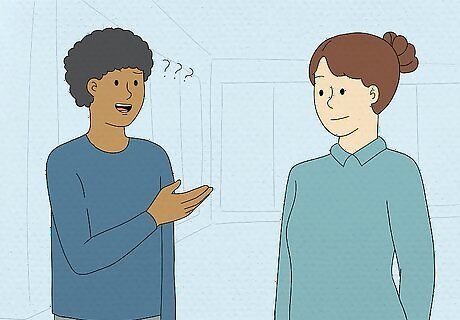
Rephrase confusing questions. If your teacher keeps calling on you and embarrassing you with difficult questions, try rephrasing the question before you answer it. She may not realize you don't understand the material – she might just think you haven't been doing the work.
Dealing with an Aggressive or Confrontational Teacher

Talk to your teacher. If you think your teacher treats you worse than other students, go to your teacher directly. There might be a simple miscommunication you can clear up, or an unhelpful behavior that one of you can change. Perhaps if you understand the teacher better, or if the teacher understands you better, the problem will be resolved. Choose a time when neither of you is under pressure. Don't speak to him if there is a line of kids waiting to discuss their grades on a test, for example, or when the teacher is in a rush to prepare for a meeting. If you are too intimidated to speak to your teacher alone, see if the school guidance counselor will join the conversation.

Get your parents involved. If your teacher is doing something that you know the school or your parents would not approve of, you may need to ask your parents to intervene. For example, your teacher punishes the entire class with weekend detention for something only a few students (not you!) are doing. Any time your teacher makes nasty comments to you or the class that involves race, gender, nationality, or anything of this nature.
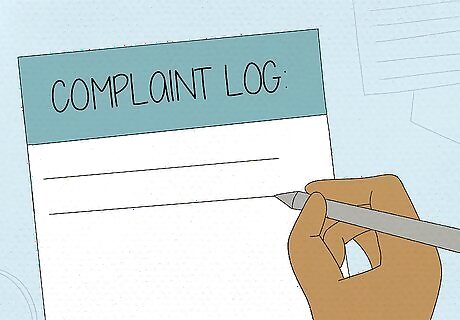
Keep a complaint log. If you feel your teacher is truly out of hand, and not treating you fairly, you might try keeping a record of incidents as they happen. Write down any hurtful comments, along with the date, and your side of the conversation. After you have a long list of complaints, you can go to a parent or the principal about it.
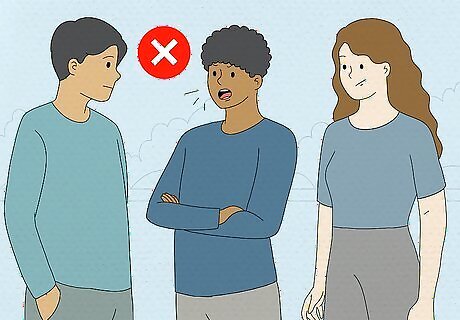
Avoid starting a war. It's natural to vent to your friends, and they will most likely agree with you. But if you stir things up, it is sure to get back to your teacher. This makes things worse for you, and causes trouble for your friends, as well.

Be respectful. Scowling, rolling your eyes, talking back, or walking off in the middle of a conversation will only make the situation worse – a lot worse. And you don't want to give your teacher anything they can complain about to your parents or the principal.
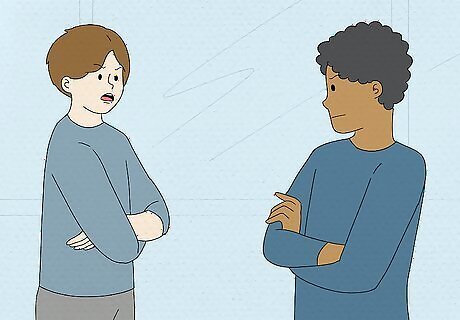
Accept that you won't get along with everyone. Teachers are people, too. Sometimes personalities simply clash with each other – just as there are kids you get along with, and others you can't stand to be around. The best teachers are careful to treat all their students alike, but not all of them do. Be sure your parents are aware of the problem, in case your teacher complains to them about you. Be as polite as possible, and try to get through each class without incident.

Keep things in perspective. You probably won't have to deal with this teacher next year. If you're in high school, this is just one hour out of your day. Although it is extremely annoying to deal with an annoying teacher, don't let it take over your life. When you're not in their class, try not to let it get you down.




















Comments
0 comment